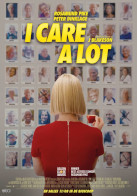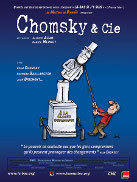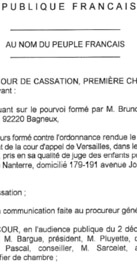| « « Nous n'avons pas le droit d'être naïf », a asséné le chef de l'Etat | Ségolène Royal persiste et signe » |
L'Unesco lance sa Bibliothèque numérique mondiale
L'Unesco lance sa Bibliothèque numérique mondiale
LEMONDE.FR avec AFP | 21.04.09 | 08h59 • Mis à jour le 21.04.09 | 10h05, extrait
L'Unesco lance officiellement, mardi 21 avril, la Bibliothèque numérique mondiale (BNM, World Digital Library). L'inauguration se fera au siège parisien de l'organisation, en présence du directeur général de l'Unesco, le Japonais Koichiro Matsuura, et de James H. Billington, directeur de la Bibliothèque du Congrès américain, à l'origine du projet. La BNM rejoint les deux grandes bibliothèques en ligne, Google Book Search et Europeana, qui permettent déjà aux lecteurs de consulter des millions de livres sur le Net. Elle vise à permettre au plus grand nombre d'accéder gratuitement, via Internet, aux trésors des grandes bibliothèques internationales et à développer le multilinguisme.
L'Organisation des Nations unies pour l'éducation et la culture a toujours considéré les bibliothèques comme la continuation de l'école. "L'école prépare les gens à aller à la bibliothèque et, aujourd'hui, les bibliothèques deviennent numériques", résume le Tunisien Abdelaziz Abid, coordonnateur du projet, qui réunit l'Unesco et trente-deux institutions partenaires. Avec ce dispositif, il sera possible de consulter sur le site de la BNM des documents conservés dans les plus prestigieuses bibliothèques, d'où que l'on se trouve dans le monde. La nouvelle bibliothèque est notamment destinée à fournir du matériel aux élèves et aux éducateurs, mais aussi au grand public.
Senior citizens flocking to the Internet
20 hours ago
MADRID (AFP) — Young people largely drove the early stages of Internet growth but in recent years the sharpest rise in Web use in developed nations has been amongst people aged 70 and over, experts said Monday.
"Older adults are the fastest growing demographic on the Internet," said Professor Vicki Hanson of the School of Computing at Scotland's University of Dundee on the opening day of a global World Wide Web conference in Madrid.
While just over one-fourth, or 26 percent, of 70-75 year olds went online in the United States in 2005, the proportion was 45 percent last year, according to data from the Pew Internet & American Life Project, she said.
The percentage of those aged 76 years and over who surf the Web rose during the same period from 17 percent to 27 percent.
Britain has experienced similar sharp gains in Internet use by people in this age group, said Andrew Arch of the World Wide Web Consortium (W3C), the main international standards organisation for the Web.
"They are basically doing the same things as everyone else. Using the Web for communication, then quickly moving to other activities like information seeking, online banking, shopping," said Arch who works to boost Web accessibility for older and disabled users.
Sending and receiving e-mail is the most popular online activity for Internet users age 64 and older, according to the Pew study.
But older Internet users are less likely than younger Web surfers to do online banking and shopping -- and far less likely to use social networking sites, it found.
"They are not on Twitter," said Hanson, referring to the microblogging Web site whose popularity got a huge boost last week as US talk show diva Oprah Winfrey became the latest big name celebrity to join the craze.
With the percentage of the population aged 60 and over expected to reach 20 percent by 2050, experts said the numbers of older Web browsers is set to continue to rise.
And with many countries increasing the retirement age, being able to use the Web will become a requirement for an increasing number of older workers.
But the physical problems that come with old age still act as a barrier to getting online. Poor vision can make reading text on the screen a challenge. Arthritis and motor control problems can make manoeuvring a mouse difficult.
Web sites can make it easier for older surfers by using larger fonts, higher contrast and extra spaces at the end of sentences, said Arch.
"The typical web developer does not really understand that the world is ageing the way it is," he said, adding the changes he is suggesting would make it easier for people of all ages to use the Internet.
"It is like footpaths. They were initially set up for the disabled but then everyone found them very useful," he said.
The number of people going online has surpassed one billion for the first time, according to online metrics company comScore.
It counts only unique users above the age of 15 and excludes access in Internet cafes and through mobile phones.


























